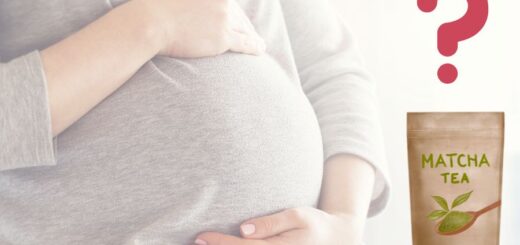Can pregnant women eat deviled eggs?
For pregnant women, eggs may seem both a safe and nutritious food choice but runny eggs can present a potential risk of salmonella poisoning. While your runny breakfast eggs might be a tantalizing dish that you are tempted to indulge in, it is better advised to avoid eating them during pregnancy and opt for thoroughly cooked alternatives instead. Can you eat deviled eggs while pregnant?
However, baking or boiling the eggs and ensuring they have reached a safe temperature will still provide you with the benefits of an excellent source of protein, vitamins, minerals and other nutrients. In addition to avoiding runny eggs when possible, pregnant moms should also avoid deli meats that are not heated before consumption as this may increase their risk of infection as well.
As the risk comes with eating soft fresh eggs or runny scrambled eggs such as poached, scrambled or sunny-side up deviled egg should not be eaten too often in pregnancy or avoided altogether. It can also be worth noting that some ingredients can contain uncooked egg such as mayonnaise and mousses so these need to be checked before eating. To ensure safety during pregnancy when it comes to avoid eating eggs, pregnant women are encouraged to use pasteurized egg products where possible as most of these have been treated in order to reduce any chances of salmonella contamination.

Are Eggs Nutritionally Good for Pregnant Women?
Enjoying a delicious egg as part of your pregnancy diet is great news! Packed with protein, amino acids and 125mg of choline per serving, eggs are an excellent choice for supporting the development of baby’s brain. Plus they bring all sorts B vitamins to the table and minerals – truly giving you more bang for your bite!
Pregnant women need not worry about eating cooked eggs or egg dishes. Following a few basic guidelines can ensure safe, daily consumption – all while gaining potential benefits for cholesterol levels!
A Special Note on UK Eggs in Pregnancy
For expectant mothers visiting the UK, enjoying a delicious soft-boiled or runny egg is still on the menu. Look out for British Lion Mark eggs to ensure your mealtime indulgences can be enjoyed with peace of mind!
In 2016, the UK government gave a nod of approval to eggs with the Lion Mark stamp. These special eggs are safe for groups like pregnant women and elderly people who typically avoid raw or runny egg dishes due to salmonella risk. With this assurance from trusted authorities, now everyone can enjoy delicious omelets and desserts without worry!
- UK Lion Mark Stamped Eggs offer the country’s highest standard of egg quality assurance for consumers. With British Lion certification, eggs are nutritious and free from potential health risks that can come with poor storage or transport conditions. Enjoy deliciousness you can trust!
- With hens’ eggs being the only exception, bird eggs are excluded from this particular rule.
- Domestic eggs are the only ones that adhere to this rule, so if you’re purchasing from local sources make sure they have a stamp!
- Don’t take a chance – always ensure your eggs are fully cooked by looking for a lion stamp before consuming them!
The Lion Mark eggs are unique – they come with a distinctive stamp on the carton and each egg, no matter what color! For those who favor white eggs, you can find them adorned in this regal mark.

A Guide to Cooked Egg Dishes if You’re Pregnant
Are you expecting and unsure of how to safely enjoy some eggs? Look no further! Here’s a helpful guide for all the different types of egg-related cuisine — from fried, scrambled or poached to soft boiled. Whether dining out at a restaurant or staying in for breakfast, this handy table will help ensure that your meals can still be delicious yet compliant with safety guidelines meant just for mums-to-be. Bon appétit!
Egg Dishes That Pregnant Women Should Avoid
Not all dishes make it clear that they contain raw or undercooked eggs, putting pregnant women at risk for contracting a foodborne illness. To ensure their safety and wellbeing during this special time in life, expectant mothers should take extra caution when selecting from the following common items: Caesar salad dressings, Hollandaise sauce, mayonnaise-based sauces such as tartar or Rémoulade sauces, homemade ice cream and frozen desserts made with uncooked eggs (i.e., meringue pies).
- Hollandaise sauce – Hollandaise sauce is a tantalizing combination of raw egg yolk and butter that creates an indulgent flavor, but sadly pregnant women must stay away. Despite the rich creamy taste, due to temperatures often kept warm in restaurant kitchens before being served this emulsion isn’t safe for expecting moms-to-be as it does not reach high enough levels required for proper cooking.
Take hollandaise, the mother of all sauces, and add a sprinkle of tarragon here or some shallot there – you can easily make delicious variations like Béarnaise or Maltaise. Or why not try something truly unique with mousseline sauce? Let your culinary imagination run wild! - Take hollandaise, the mother of all sauces, and add a sprinkle of tarragon here or some shallot there – you can easily make delicious variations like Béarnaise or Maltaise. Or why not try something truly unique with mousseline sauce? Let your culinary imagination run wild!
When it comes to sauces, the French have a long-standing tradition of using raw egg as one of their main ingredients in what they call “mother sauce”. To ensure your safety when trying out unfamiliar dishes at restaurants and other places with unknown origins, make sure you ask about all the components before digging in. - Eggs Benedict may look tempting, but pregnant women should think twice before indulging. This cherished dish is a double threat, with poached eggs and hollandaise sauce both posing risks to expecting mothers’ health.
With a double dose of danger, the Eggs Royale should be approached with extreme caution – it contains both raw fish and poached eggs. Expecting mothers would do well to steer clear altogether, opting instead for more suitable ‘benedict’ creations without hollandaise or poaching. - Mousse (all flavors) – For those looking for a decadent dessert, mousse may seem like the perfect solution. However, most homemade recipes or restaurant varieties require raw egg – and since this isn’t cooked through before consumption, there’s an increased risk of contracting foodborne illnesses. To be safe when indulging in your favorite flavor of mousse, make sure to check it contains pasteurized eggs!
- Meringue (all types: Swiss, French and Italian) – Sweetly scrumptious meringues are a delightful treat, but due to the use of raw egg whites in their creation – caution is key! Though traditionally these delectable desserts and pie toppings lack cooking time, it’s best to opt for Lion Mark eggs from the UK or those that have been pasteurized when indulging.
Delight in a pregnancy-safe treat with crunchy, hard meringues! Enjoy them as classic nests or smash up for the perfect sweet snack – Eton Mess. All perfectly safe to enjoy while expecting due to the cooking process during baking. - Ice Cream – Homemade ice cream and frozen custard are a delicious indulgence – but if you want to get creative, why not try using raw egg in the recipe? Store-bought varieties usually contain pasteurized ingredients though, so this trick isn’t for everyone!
I wrote a whole separate article on eating ice cream in pregnancy, and also another on what pregnant women ought to know about frozen custard and yogurt, which you might be interested in. - “No-bake” recipes like cheesecake set in the fridge – Enjoy the sophisticated flavors of European-style cheesecake without ever turning on your oven! This light and creamy treat is made with a delicate combination of eggs, cream cheese, and other delightful ingredients that are carefully blended together then chilled to perfection in the refrigerator.
Although cheesecake is a delicious treat in pregnancy, expecting moms should definitely check out my guide to make sure they’re making the healthiest dessert choices! - Mayonnaise, a classic condiment that resembles hollandaise sauce in consistency, is made of egg yolk, acidic flavoring such as lemon juice or vinegar and oil. While homemade versions can be delightful if prepared with caution – they may contain raw eggs which should be avoided by expectant mothers – many restaurants make their own from scratch to ensure the highest standards are met for all diners.
Worried about the safety of mayo while pregnant? Rest assured, with all commercially-produced versions using pasteurized eggs – you can enjoy a creamy condiment without anxiety. Why not learn more from the insightful article I’ve written on this topic – perfect for mothers to be! - Salad Dressings – Rich in flavor and texture, Caesar dressings typically feature a luxurious combination of egg yolk, herbs and spices. Eating out? Make sure to check the ingredients list first! If you’re pregnant or breastfeeding it’s best to opt for store-bought brands containing pasteurized eggs for extra peace of mind – homemade varieties may be less safe.
- Raw batter and dough – When baking your favorite cookies or treats, be sure to resist the temptation of licking that spoon! Although a small pleasure for many bakers, in pregnancy it’s wise to avoid consuming any raw egg-containing batter mix due to potential health risks.
For all the cookie dough fans out there, rejoice! There are plenty of store-bought varieties that can be enjoyed sans baking. And if you’re expecting or curious about consuming raw cookie dough while pregnant, then look no further – check out my article on everything related to pregnancy and edible pre-made cookies for an answer (and a sweet treat). - Egg Salad (including the type with mayonnaise) – Chopped hard boiled eggs are often a key ingredient in egg salad, but one must always carefully check that the dish was prepared safely. Additionally, pay special attention to mayo-based dressings as these can contain raw eggs and thus introduce harmful bacteria.
- Devilled Eggs – Pregnancy doesn’t mean you have to miss out on eating deviled eggs. Just make sure, if you didn’t prepare them yourself, that the eggs were thoroughly hard-boiled and any mayo used was pasteurized – then they can be a delicious treat!
- Scotch Eggs or Eggs contained in pies – For a truly sophisticated egg experience, feel free to order your breakfast entrée UK-style. A soft or runny yolk awaits you at higher class delis and restaurants!

Can Pregnant Women Eat Just Egg Yolk, and Not the White, or Vice Versa?
Expectant mothers should think twice before indulging in dishes with raw egg – both the yolk and white may contain salmonella, which can be hazardous to their health. Better safe than sorry – pass on those sunny side up egg white!
In pregnancy, it’s important to treat eggs as a complete package. For full nutritional benefit and safety, make sure the entire egg is cooked through – no runny yolks! The rich yellow center of an egg provides most of its crucial nourishment; don’t miss out on these valuable nutrients by skipping over the yolk.
How Many Eggs Can I Eat a Day When Pregnant?
Eggs are a nutritional powerhouse and make an essential part of any expectant mother’s diet. Packed with vitamins, minerals, and protein – eating the right amount is key to maintaining healthy pregnancy nutrition. So how many eggs should you be enjoying each day?
Pregnant women can enjoy eggs as part of a nutritious diet! According to the Dietary Guidelines For Americans, there’s no need to limit cholesterol intake during pregnancy–so if your individual circumstances (like cholesterol levels and dietary responses) are favorable, you could be enjoying an egg-cellent meal every day.
Delicious and nutrient-dense, eggs make for a great daily snack or meal staple when eaten in moderation. Though they are high on dietary cholesterol, don’t worry – there’s no need to fear their potential heart disease impact!
Did you know that while we commonly blame food for high cholesterol levels, our bodies actually produce 80% of the total amount? Harvard Health has stated this to be true.
While eggs offer numerous health benefits, it is important to be aware of how your body reacts to dietary cholesterol. If you are a “super responder” or suffer from high cholesterol levels, talk with your doctor before making them part of your daily diet.
Eating deviled eggs while pregnant is a common question for expecting mothers! One of the most important aspects of a baby’s brain development happens in the womb, so it’s crucial to eat nutritious foods while you are pregnant.
Fortunately, deviled eggs are safe to consume during pregnancy and provide essential vitamins and minerals that can help baby’s development. However, it’s important to avoid eating raw or undercooked eggs, as they may increase the risk of foodborne illnesses like salmonella which can cause complications during pregnancy. Eating deviled eggs in moderation will ensure baby is getting all the nourishment necessary for healthy growth!
Read more: Can you eat a hotdog while pregnant? Guide 2023
FAQ
Can you eat egg yolk in Mayo when pregnant?
Yes, you can eat egg yolk in mayonnaise when pregnant as long as it is made with pasteurized eggs. Commercial mayonnaise is typically made with pasteurized eggs, which are heated to kill any bacteria or viruses that could be harmful. However, if you are making homemade mayonnaise, it is recommended that you use pasteurized eggs or an egg substitute to reduce the risk of foodborne illness.
Why do I crave deviled eggs while pregnant?
Pregnancy can cause changes in taste and smell, which can lead to food cravings. Deviled eggs are a popular snack that many people enjoy, and the combination of creamy egg yolk filling with tangy mustard and a sprinkling of paprika can be very appealing. Additionally, eggs are a good source of protein and other nutrients that are important for a healthy pregnancy, so it is possible that your body is craving deviled eggs as a way to fulfill its nutritional needs. However, it is important to consume eggs and egg-based dishes, like deviled eggs, safely during pregnancy, by ensuring they are fully cooked and stored properly to prevent the risk of foodborne illness.
Are cold-boiled eggs safe during pregnancy?
Yes, cold-boiled eggs are safe to eat during pregnancy as long as they have been cooked and stored properly. It is important to make sure that the eggs are fully cooked, as eating raw or undercooked eggs can put you at risk for salmonella. Additionally, make sure to keep the boiled eggs refrigerated until you are ready to eat them, and discard any eggs that have been left out at room temperature for more than two hours.
What happens if you accidentally eat mayonnaise when pregnant?
Eating mayonnaise during pregnancy is safe as long as it is made with pasteurized eggs. However, consuming mayonnaise made with raw or undercooked eggs can pose a risk of foodborne illness. If you accidentally consume mayonnaise made with raw or undercooked eggs during pregnancy, monitor yourself for any signs of foodborne illness such as nausea, vomiting, diarrhea, or fever. If you experience any of these symptoms, it is recommended to contact your healthcare provider for further guidance.
Our previous article 15 Signs Of Pregnancy To Know If You Are Pregnant in the title Am I pregnant ve pregnancy exercises information is provided..












7 Responses
[…] Relevant post >> Can you eat deviled eggs while pregnant? […]
[…] Relevant post >> Can you eat deviled eggs while pregnant? […]
[…] Relevant post >> Can you eat deviled eggs while pregnant? […]
[…] Relevant post >> Can you eat deviled eggs while pregnant? […]
[…] Relevant post >> Can you eat deviled eggs while pregnant? […]
[…] Relevant post >> Can you eat deviled eggs while pregnant? […]
[…] Relevant post >> Can you eat deviled eggs while pregnant? […]